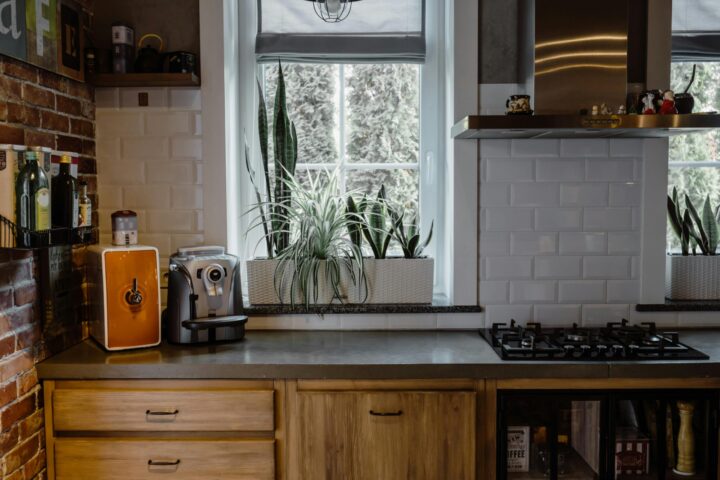The following contribution is from another author.
Sustainable home upgrades are becoming increasingly popular as homeowners strive to reduce their environmental impact while cutting energy costs. With concerns about climate change and rising utility bills, more people are turning to eco-friendly solutions that can benefit both their wallets and the planet. From installing energy-efficient appliances to adopting renewable energy sources, sustainable home improvements offer a range of advantages that go beyond just saving money.
This article explores five of the key benefits of sustainable home upgrades and how they can positively impact your home and lifestyle.
Improved Energy Efficiency
One of the most immediate and noticeable benefits of sustainable home upgrades is the boost in energy efficiency. By installing energy-efficient windows, doors, and insulation, homeowners can significantly reduce the amount of energy needed to heat or cool their homes. These improvements help to seal the house more effectively, preventing drafts and keeping the temperature consistent year-round.
In addition to insulation, upgrading to energy-efficient appliances can lead to substantial savings. Appliances like refrigerators, washing machines, and dishwashers that carry an Energy Star label are designed to consume less electricity while maintaining high-performance levels. This lowers the overall energy demand on the grid, making it a win-win for both your home and the environment.
Reduced Energy Costs
Installing solar panels is one of the most transformative sustainable upgrades a homeowner can make. Solar power harnesses energy from the sun, providing a renewable source of electricity for your home. This allows you to reduce your dependence on traditional energy sources, which can be costly and harmful to the environment.
By generating your own electricity, solar panels can drastically lower your monthly utility bills. In some cases, homeowners with solar panel systems even generate excess power, which can be sold back to the grid. Moreover, many local authorities and governments provide rebates, tax incentives, or grants to encourage solar panel installations, further reducing the upfront costs and making solar energy more accessible. Over time, the investment in solar panels pays off with significant savings on electricity and a reduced environmental footprint.
Increased Home Value
Sustainable home upgrades do more than just save you money on utility bills—they also add value to your property. Homes equipped with energy-efficient windows, appliances, or solar panels are more appealing to buyers who are looking for long-term savings and lower environmental impact. In today’s market, sustainability is a selling point, with eco-friendly features often allowing homeowners to command a higher asking price.
Moreover, as energy costs continue to rise, homes with built-in energy-saving technologies become even more attractive. Potential buyers are more likely to invest in a property that already has upgrades designed to reduce energy consumption. This means that the money you spend on sustainable home improvements can be seen as an investment in your home’s future resale value.
Healthier Indoor Environment
Many sustainable home upgrades are designed with the health of your family in mind. For instance, opting for non-toxic materials, such as low-VOC paints and eco-friendly insulation, can greatly improve the air quality inside your home. Traditional building materials often contain harmful chemicals that can release toxins into the air over time, leading to respiratory issues and other health problems. Sustainable alternatives, on the other hand, minimize these risks and create a healthier living environment.
Furthermore, improved ventilation systems and better insulation can help regulate humidity levels, reducing the risk of mold and mildew growth. By investing in these upgrades, homeowners can enjoy cleaner air and a more comfortable indoor atmosphere, contributing to better overall health and well-being for their families.
Reduced Environmental Impact
One of the core reasons for adopting sustainable home upgrades is to reduce your environmental impact. Every improvement, whether it’s installing energy-efficient lighting or using renewable materials, helps decrease the amount of energy your home consumes. This, in turn, reduces greenhouse gas emissions and conserves natural resources, contributing to a more sustainable future.
By choosing sustainable materials and products, you’re also supporting eco-friendly industries. Many companies are now producing goods that prioritize sustainability, from bamboo flooring to recycled countertops. These products not only perform well but also have a much lower environmental impact than their traditional counterparts.
Lower Water Usage
Sustainable home upgrades can also help reduce water consumption. One of the most effective ways to lower water usage is by installing low-flow fixtures, such as toilets, faucets, and showerheads. These fixtures are designed to use less water without sacrificing performance. For example, a low-flow showerhead can cut water usage by nearly half, helping you conserve this precious resource while also reducing your water bill.
In addition to indoor water-saving upgrades, homeowners can implement sustainable landscaping practices like rainwater harvesting and drip irrigation systems. These systems capture and distribute water more efficiently, minimizing waste. By making these changes, you can reduce your home’s overall water usage, saving money while contributing to water conservation efforts.
Long-Term Savings on Maintenance
Sustainable home upgrades often involve the use of high-quality, durable materials that are designed to last longer than traditional options. For instance, eco-friendly roofing materials like metal or recycled shingles can withstand harsh weather conditions better than conventional asphalt shingles, lowering the need for every day repairs or replacements. Energy-efficient windows, too, are designed to be more resilient to weather extremes, meaning fewer repairs and a longer lifespan.
These durable materials require less maintenance over time, translating into long-term savings for homeowners. Although the initial investment in sustainable materials may be higher, the reduced need for upkeep and repairs makes it a cost-effective solution in the long run. Furthermore, by choosing sustainable products, homeowners are not only saving money but also reducing waste and promoting environmental responsibility.
In conclusion, sustainable home upgrades offer a wealth of benefits, from reducing energy and water usage to enhancing comfort and increasing your home’s value. By making eco-friendly changes, homeowners can enjoy immediate financial rewards and long-term savings while contributing to a healthier planet. Investing in sustainable solutions is not only good for the environment, but it also sets your home up for success in the future.
















